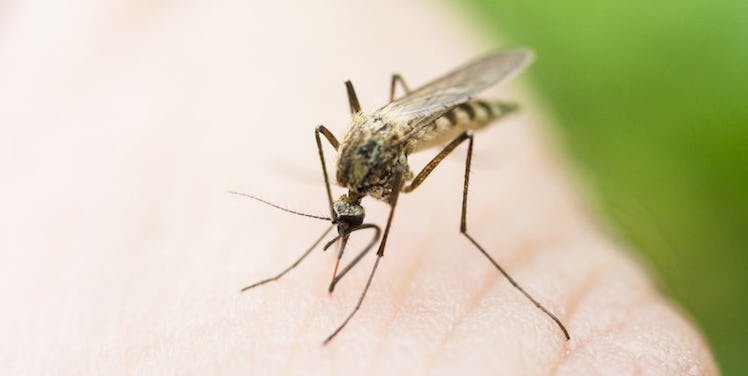
Here's Everything You Need To Know About The Zika Virus
A travel alert was issued for people heading to several popular destinations due to the spread of the Zika virus.
According to Condé Nast Traveler, the Centers for Disease Control and Prevention (CDC) officially warned against traveling to Brazil, Colombia, El Salvador, French Guiana, Guatemala, Haiti, Honduras, Martinique, Mexico, Panama, Paraguay, Suriname, Venezuela and Puerto Rico.
Named after the Ugandan forest where it was first identified in 1947, the Zika virus is typically transmitted to humans by Aedes mosquitos, the same insects carrying dengue and yellow fever.
Should a mosquito bite someone with the disease, that mosquito would then infect the next person it bites.
Symptoms include low fever, rash, muscle pain, joint pain and pink eye.
Three-quarters of patients don't know they are sick because the symptoms are so mild, NBC News reports.
In Brazil, however, the disease appears to be linked to a potentially lethal brain condition called microcephaly.
This birth defect, usually contracted during pregnancy, results in infants with unusually small heads, developmental problems and brain damage.
In 2014, there were 147 cases of microcephaly in Brazil, but over the past four months, the condition killed 46 babies and infected about 3,500 in the South American nation, according to CNN.
Some Brazilian babies were found to contain traces of the Zika virus, according to NBC News, leading researchers to believe microcephaly may be transmitted by pregnant women with the virus.
A baby recently born in Hawaii was reportedly infected with Zika virus during pregnancy and now has microcephaly.
In a statement, Hawaii's health department reportedly said,
The mother likely had Zika infection when she was residing in Brazil in May 2015 and her newborn acquired the infection in the womb. Neither the baby nor the mother are infectious, and there was never a risk of transmission in Hawaii.
The Zika virus has little if any chance of spreading in the US, the CDC said, largely thanks to the Aedes mosquito's distaste of cold weather and air-conditioning.
Travelers heading to the previously mentioned nations are advised to use insect repellent, wear long-sleeved clothing and hats and sleep under mosquito nets.
There is no individual treatment for Zika virus, but if an outbreak were to occur, experts are confident they could develop a vaccine.
Citations: Zika Virus Travel Warning What You Should Know (Condé Nast Traveler), Hawaii baby born with small head had prior Zika infection (CNN), Zika Virus Five Things You Need to Know (NBC News)